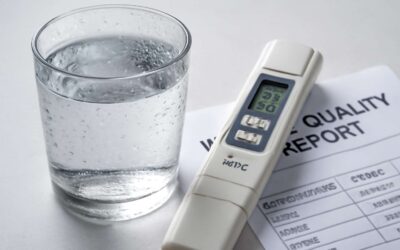Understanding Overhydration and Water Intoxication
What Is Overhydration? – Definition and causes of drinking excessive water
In the shadowed corridors of hydration, a sinister whisper lurks—an insidious condition known as overhydration. When the delicate balance of water in our bodies is disturbed by drinking water too much symptoms manifest not as relief, but as a haunting reminder of excess. This phenomenon, often cloaked in the guise of health, can lead to a perilous state called water intoxication, where the body’s natural equilibrium is shattered.
At its core, overhydration occurs when the kidneys are overwhelmed, unable to process the flood of liquid, causing an abnormal dilution of essential electrolytes like sodium. This imbalance can be traced to a dangerous cascade of causes, such as relentless water intake during intense physical exertion or misguided attempts at detoxification. The symptoms emerge gradually—confusion, nausea, and swelling—each a ghostly echo of the body’s struggle to maintain its sanctuary of balance. Recognizing drinking water too much symptoms early is crucial before the darkness of water intoxication fully consumes the vital functions of the body.
Difference Between Normal and Excessive Water Intake – Distinguishing healthy hydration from overhydration
Understanding the fine line between healthy hydration and overhydration is essential, especially in a climate like South Africa’s where the sun’s relentless gaze often tempts us to gulp more water. While drinking water too much symptoms may initially seem trivial—perhaps a fleeting sense of nausea or mild swelling—these signals can escalate if ignored. The key difference lies in moderation; our bodies are finely tuned instruments that rely on a delicate balance of electrolytes, chiefly sodium, to function optimally.
Overhydration, or water intoxication, occurs when this balance is disrupted by excessive water intake. Unlike normal hydration, which replenishes lost fluids and maintains cellular health, drinking water too much symptoms can include confusion, headaches, and muscle weakness. Recognizing these early signs is crucial because they often mirror common ailments but mask a more insidious threat. It’s a reminder that hydration, while vital, must be approached with mindfulness—too much of a good thing can quickly turn into a silent peril.
Common Symptoms of Drinking Too Much Water
Early Signs to Watch For – Symptoms like frequent urination and dizziness
In a world obsessed with hydration, it’s easy to overlook the hidden dangers of drinking water too much symptoms. While staying well-hydrated is essential for health, overdoing it can lead to unexpected and sometimes alarming signs. One of the earliest indicators is frequent urination, often accompanied by a feeling of persistent thirst that seems unquenchable. This paradoxical sensation can be confusing, especially when it feels like your body is sending mixed signals about its hydration needs.
Another common symptom of drinking water too much symptoms is dizziness. When excess water dilutes the sodium levels in your bloodstream—a condition known as hyponatremia—your body struggles to maintain balance. This can result in feelings of light-headedness or even fainting episodes, which are particularly concerning in daily activities or during physical exertion. Recognizing these early signs is crucial, as they reflect the body’s attempt to restore equilibrium and warn us to reconsider our hydration habits.
Advanced Symptoms – Confusion, nausea, and muscle weakness
When water intake surpasses the body’s ability to process it, the symptoms can become more severe and alarming. Advanced signs of drinking water too much symptoms include confusion, nausea, and muscle weakness. These symptoms are often overlooked or mistaken for other issues, but they signal that your body is struggling to maintain balance. Hyponatremia, caused by diluted sodium levels, is a common culprit behind these more serious symptoms.
Muscle weakness and nausea can develop suddenly, making daily activities difficult and raising concern about your health. Confusion, on the other hand, indicates that your brain is affected by electrolyte imbalances. Recognizing the progression from early signs to these advanced symptoms is essential to prevent serious complications.
In some cases, individuals may experience:
- Persistent headaches
- Swelling in the hands and feet
- Disorientation
Severe Symptoms – Swelling, seizures, and potential brain damage
When hydration turns into a silent threat, the severity of drinking water too much symptoms becomes a stark reality. In extreme cases, the imbalance can trigger swelling, seizures, and even irreversible brain damage. These severe symptoms are often underestimated or dismissed until they escalate into a medical emergency. The brain, delicate and highly sensitive to electrolyte disturbances, is particularly vulnerable. Swelling in the brain, known as cerebral edema, can rapidly impair consciousness and lead to life-threatening consequences.
Among the most alarming signs are seizures, which indicate that the body’s electrolyte balance has been critically compromised. Similarly, swelling in the hands and feet may initially seem benign but signals a deeper disturbance. Recognizing these symptoms early is crucial because they mark a turning point—where drinking water too much symptoms transition from discomfort to danger. If left unchecked, these symptoms can spiral into catastrophic outcomes, underscoring how vital it is to understand the limits of hydration.
Health Risks Associated With Excessive Water Intake
Electrolyte Imbalance – Hyponatremia and its implications
Overhydration might sound harmless, but the reality is far more complex—and potentially perilous. When the body takes in too much water, it can upset the delicate balance of electrolytes, particularly sodium, leading to a condition known as hyponatremia. This electrolyte imbalance can silently creep in, often with subtle signs that are easy to overlook. As the sodium levels plummet, symptoms such as nausea, confusion, and muscle weakness begin to manifest, sometimes rapidly escalating into severe neurological issues. It’s a stark reminder that drinking water too much symptoms are not always obvious or benign.
Hyponatremia’s implications extend beyond discomfort—untreated, it can cause brain swelling, seizures, and in extreme cases, irreversible damage. Recognizing the early signs of electrolyte imbalance is crucial; frequent urination, headaches, and a feeling of being overly bloated are often the first clues. In regions like South Africa, where hydration is vital amid hot climates, understanding the risks associated with excessive water intake can be the difference between healthy hydration and dangerous overconsumption. Remember, moderation remains key—more isn’t always better when it comes to water.
Kidney Strain – Impact on kidney function and potential damage
While staying hydrated is essential, the peril of drinking water too much symptoms lurk silently beneath the surface. Excessive water intake can place an enormous strain on the kidneys, the body’s natural filters, tasked with maintaining electrolyte balance and removing waste. When overwhelmed, these vital organs struggle to keep up, risking long-term damage that can alter kidney function permanently.
In extreme cases, the kidneys become overworked, leading to a condition called water intoxication. This can cause the kidneys to swell and fail, especially if the body consistently receives more water than it can process. Symptoms such as persistent fatigue, swelling in the extremities, and a noticeable decrease in urine concentration are often early indicators. Recognizing these drinking water too much symptoms is crucial for preventing irreversible injury.
For those living in regions like South Africa, where hot climates accelerate fluid loss and the temptation to hydrate endlessly is strong, understanding the impact of overhydration becomes vital. Over time, the strain on kidney tissue can lead to decreased filtration efficiency, ultimately jeopardizing overall health. It’s a delicate balance—too much water can turn a simple act of hydration into a health hazard, emphasizing that moderation is truly the key to safe drinking practices.
Neurological Effects – How overhydration affects brain health
When the balance tips, and water floods the brain, the consequences can be startling. Excessive water intake can dilute brain electrolytes, leading to neurological effects that threaten overall health. The delicate equilibrium of sodium and other essential minerals becomes disturbed, causing the brain to swell—a condition known as cerebral edema. This swelling can manifest as confusion, disorientation, and even seizures, turning hydration into a perilous act.
In South Africa’s scorching climate, where hydration is vital, understanding the symptoms of drinking water too much symptoms becomes crucial. Overhydration doesn’t just strain the kidneys; it impacts the central nervous system profoundly. Persistent headaches, muscle weakness, and nausea are early warning signs, but if ignored, the situation can escalate rapidly. Recognizing these symptoms early may prevent irreversible brain damage and safeguard long-term health.
Who Is at Risk of Drinking Too Much Water?
Athletes and Exercise Enthusiasts – Why hydration needs vary during workouts
In the rugged terrains of South Africa, where the sun blazes fiercely and the call of adventure beckons, hydration becomes an essential companion. Yet, even the most seasoned athletes and exercise enthusiasts must beware the silent peril of drinking water too much symptoms can sometimes mimic dehydration, leading to confusion and danger. For those pushing their limits in the wilderness or the gym, understanding who is at risk of overhydration is vital.
Athletes and exercise enthusiasts, especially during intense training or endurance events, are particularly vulnerable. Their bodies demand careful regulation of fluid intake—too little and dehydration strikes, too much and the risk of overhydration looms. When hydration needs vary during workouts, the line between optimal hydration and overhydration blurs, making awareness crucial. Overhydration can cause electrolyte imbalances, which, if left unchecked, may lead to severe health complications.
- Long-distance runners pounding the trails of the Drakensberg
- Swimmers and cyclists engaging in extended sessions
- Outdoor enthusiasts participating in strenuous hikes under the scorching sun
Understanding the delicate balance of water intake is essential for those who thrive in South Africa’s diverse climates, ensuring they stay energized without falling into the trap of drinking water too much symptoms. Staying vigilant protects not just athletic performance but also overall well-being in the wilderness or urban landscapes alike!
Individuals with Certain Medical Conditions – Risks for kidney or heart conditions
In South Africa’s sun-drenched landscapes, where adventure beckons and the climate often pushes bodies to their limits, understanding who is at risk of drinking water too much symptoms is paramount. Individuals with certain medical conditions, such as kidney or heart issues, are particularly vulnerable. Their bodies may struggle to regulate fluid balance, making excessive water intake a hidden threat rather than a safeguard.
For those with compromised kidney function, overhydration can exacerbate existing problems, leading to dangerous electrolyte imbalances. Heart conditions may impair the body’s ability to manage fluid levels, heightening the risk of swelling and other complications. It is crucial for these individuals to recognize the subtle warning signs of drinking water too much symptoms, which might initially mimic dehydration but can quickly turn perilous.
Because the danger lurks in seemingly harmless habits, awareness becomes a lifeline. Monitoring fluid intake and listening to one’s body are essential steps to prevent the cascade of health issues that drinking water too much symptoms can usher in. When navigating South Africa’s diverse terrains and climates, staying informed about these risks ensures that hydration remains a protective ally, not an unseen adversary.
Un Intentional Overconsumption – Factors like mental health and misunderstanding hydration needs
In a nation where sunny days and outdoor adventures are practically national hobbies, hydration is king — but beware the siren call of overhydration! While drinking water too much symptoms might seem harmless, unintentional overconsumption can sneak up on even the most diligent drinkers. Factors like mental health struggles or simply misunderstanding hydration needs can turn routine sips into a perilous game of water roulette. For some, the line between healthy hydration and dangerous excess blurs, leading to symptoms that mimic dehydration but hide a more sinister twist.
Particularly vulnerable are those with mental health conditions or obsessive tendencies, who might compulsively hydrate without listening to their body’s signals. This often results in drinking water too much symptoms such as confusion, nausea, or muscle weakness. Sometimes, it’s a simple case of misjudging what the body truly needs, especially when overwhelmed by misinformation or a desire to “stay healthy.” Recognizing these subtle signs is crucial, as they can escalate rapidly into severe health issues, including hyponatremia and brain swelling.
For individuals at risk, understanding the factors that contribute to unintentional overconsumption becomes a lifeline. In the South African context, where climate extremes challenge even the most seasoned hydration experts, staying alert to the symptoms of drinking water too much symptoms can prevent a health crisis in the making.
Preventing Overhydration: Tips and Recommendations
Listening to Your Body – Recognizing thirst cues and proper hydration balance
Listening to your body’s whispers is the first step in preventing overhydration. Thirst is not just a signal for water intake; it’s a delicate cue that guides your hydration balance. When you feel parched, it’s time to sip, but not drown yourself in water. Recognizing early signs such as frequent urination, headaches, or a feeling of bloatedness can help you stay in harmony with your body’s needs.
Sometimes, the symptoms of drinking water too much symptoms manifest subtly—confusion, nausea, or muscle weakness might sneak in, warning of an electrolyte imbalance like hyponatremia. To avoid these dangers, consider adopting a mindful approach to hydration.
A useful method is to follow an uncomplicated hydration rhythm:
- Listen to your physical cues.
- Drink small amounts regularly rather than large gulps.
- Pay attention to the color of your urine—pale straw indicates proper hydration.
By tuning into these signals, you can maintain a healthy hydration equilibrium, ensuring water works as a nourishing elixir rather than a silent threat.
Guidelines for Safe Water Intake – Optimal daily intake based on activity and climate
In a world where hydration is touted as a panacea, it’s easy to overlook the peril of overhydration—an insidious threat lurking behind well-meaning hydration routines. The truth is, drinking water too much symptoms can mimic common ailments, yet they carry the weight of serious health consequences. Recognizing these signs early becomes crucial in safeguarding your well-being, especially in South Africa’s diverse climate where fluid needs fluctuate unpredictably.
To prevent falling into the trap of overhydration, it’s essential to tailor your water intake to your activity level and environment. For instance, during intense heat or prolonged physical exertion, your hydration requirements soar—but overconsumption can tip the scales into dangerous territory. A balanced approach involves listening to your body’s cues, such as thirst, while avoiding excessive drinking that may lead to symptoms like confusion, nausea, or muscle weakness—key indicators of drinking water too much symptoms manifesting.
Incorporating simple guidelines, such as sipping small amounts consistently and monitoring urine color—aiming for a pale straw hue—can help maintain hydration without risking the silent encroachment of hyponatremia. Remember, hydration isn’t just about quenching thirst; it’s a nuanced equilibrium that, if disrupted, can profoundly impact your neurological and renal health. Be mindful of your body’s signals, and hydration becomes a nourishing act rather than a perilous overreach.
When to Seek Medical Advice – Recognizing serious symptoms requiring professional attention
Overhydration may seem harmless, but it can quickly spiral into a dangerous health crisis if left unchecked. Recognizing when your body signals distress is vital to avoid severe complications associated with drinking water too much symptoms. If you experience persistent confusion, severe nausea, or muscle weakness, it’s time to seek medical advice immediately. These symptoms often indicate hyponatremia, a potentially life-threatening electrolyte imbalance caused by excessive water intake.
In cases of advanced symptoms, such as swelling, seizures, or altered mental state, urgent medical intervention becomes critical. Ignoring these signs can lead to serious neurological effects, including brain swelling and even coma. Remember, your body’s cues—like persistent headaches, dizziness, or unexplained fatigue—should never be dismissed. When these symptoms appear, prompt consultation with a healthcare professional helps prevent long-term damage and ensures proper treatment for drinking water too much symptoms.
Addressing Myths About Drinking Water
Debunking the ‘More is Better’ Myth – Why excessive water isn’t always healthier
In a world obsessed with hydration, many believe that more water always equates to better health. However, this myth can be dangerous. Drinking water too much symptoms often mimic common ailments, making it tricky to recognize when overhydration becomes a serious concern. The misconception that “more is better” can lead to a cascade of health issues, especially if you’re unaware of the subtle signs. It’s essential to understand that exceeding optimal water intake can disrupt your body’s delicate electrolyte balance, resulting in conditions like hyponatremia. Recognizing the symptoms early—such as persistent nausea, confusion, or swelling—can save you from severe health complications. So, while staying hydrated is crucial, moderation and awareness of drinking water too much symptoms help maintain your well-being without tipping into danger.
Understanding Individual Needs – Hydration varies by person and circumstance
Hydration is vital, but understanding individual needs is essential to avoid the pitfalls of overhydration. Many assume that drinking more water automatically translates to better health, yet this isn’t always the case. Each person’s hydration requirements vary depending on factors like climate, activity level, and overall health. For instance, athletes or those living in hot climates might need more, but even then, there’s a fine line between optimal hydration and drinking water too much symptoms. Recognizing these subtle cues can prevent dangerous conditions such as hyponatremia or kidney strain.
Listening to your body remains the best guide. Thirst is a natural signal—ignoring it can lead to unnecessary water intake, while overreacting to minor sensations might result in overhydration. If you find yourself experiencing persistent nausea, confusion, or swelling, these could be signs of drinking water too much symptoms. Staying informed about your unique hydration needs helps maintain balance and safeguards your health amidst the myths surrounding endless hydration. Remember, moderation is the key to avoiding the silent danger posed by excessive water consumption.




0 Comments